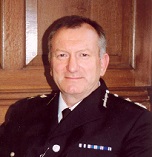 The College of Policing Professional Committee has approved updated guidance on media relationships to ensure a more consistent approach by forces in their regular dealings with the media. The updated guidance, called Relationships with the Media, will now be available to Chief Constables for implementation.
The College of Policing Professional Committee has approved updated guidance on media relationships to ensure a more consistent approach by forces in their regular dealings with the media. The updated guidance, called Relationships with the Media, will now be available to Chief Constables for implementation.
The guidance was reviewed following criticism about differing approaches to releasing information by forces and is intended to ensure a professional working relationship between police and the media. It updates police practice on ‘off-the-record’ briefings, recording contact with the media, appropriately reporting any personal relationship between a police officer and a journalist and providing information concerning arrests to the media.
College of Policing chief executive, Chief Constable Alex Marshall said: “Ensuring a professional approach to policing is central to the work of the college. What the police do must be above reproach, and ensuring integrity in our dealings with the media and the public goes to the heart of trust and confidence in policing.
“The guidance aims to strike the correct balance between the confidentiality owed to private citizens and the need for an open and honest relationship with the media. The guidance makes clear that someone charged with an offence can be named, where no legal restrictions apply.
“There is nothing to prevent the naming of a person who has been arrested, but anonymity should normally be respected unless naming would help to prevent crime, save life or would be in the public interest.”
National policing lead for communications Chief Constable Andy Trotter (pictured) said: "An open, professional and strong relationship with the media is an essential aspect of the way in which the police are held to account. This guidance actively encourages police officers and staff to speak to the media about matters for which they are responsible. They should be open, honest and approachable.
“The police also have a duty to safeguard information. At times the decision between openness and confidentiality can be finely balanced. We aim to bring into the open our guidance about when someone should be named or not so that the approach is clearly understood.”
According to an article in the online newsletter Police Oracle, the revision of the guidance follows a decision by Warwickshire Constabulary to reverse its original decision not to name a former officer charged with the theft of £113,000 from force premises.
Le teste parlanti chiamano questa "bassa libido sessuale" – http://pillolegroup.it/priligy.html Acquistare Priligy Online e abbiamo cercato di far avanzare le donne e parlarne.